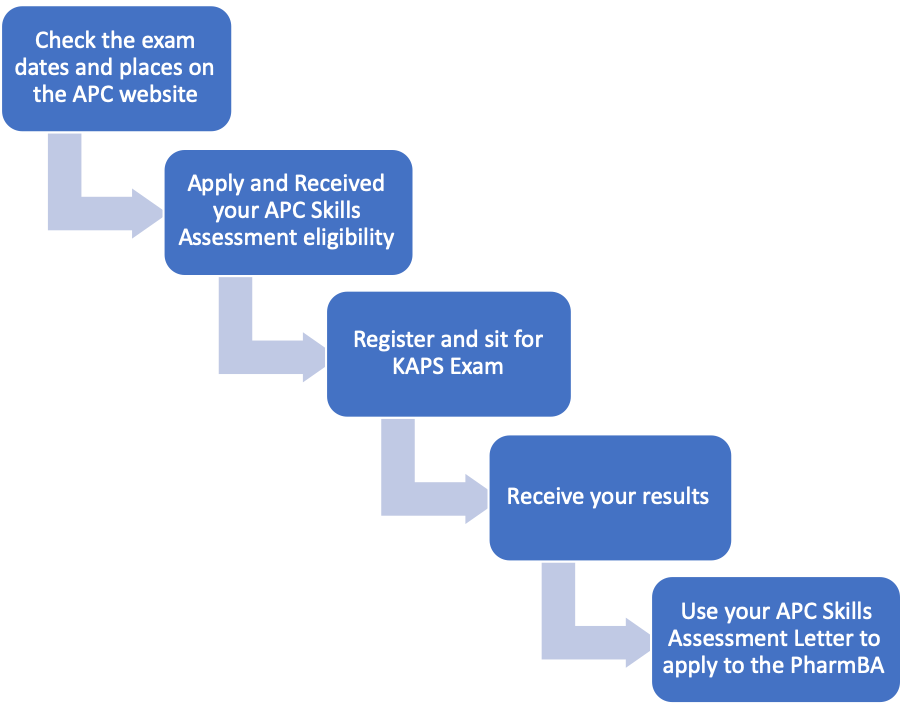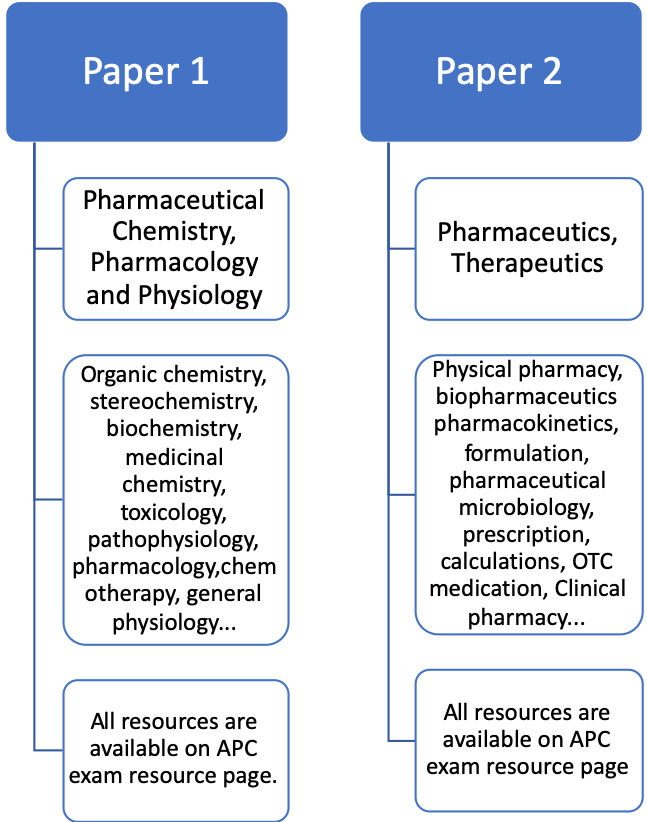KAPS Exam
The Australian Pharmacy Council (APC) assists overseas-skilled pharmacists with an assessment process towards registration in Australia and consequently allows them to gain experience in Australia. The council has devised a knowledge Assessment of Pharmaceutical Science (KAPs) process to enable overseas-trained pharmacists to demonstrate their understanding and competence related to the current practice of pharmacy in an Australian setting.
KAPs is open for all the overseas-trained pharmacists who have completed an approved pharmacy program after 1 January 2006 which includes minimum components of the equivalent of 4 years of full-time academic study. To know definitively whether or not you are eligible to take the exam you need to get a Stream A eligibility letter.
The KAPS exam is conducted in a number of major cities internationally, three times a year.
KAPS Exam Content

KAPS Exam Content
There is no limit to the number of times a candidate can sit the KAPS. The exam comprises of two 100 MCQ, 2 hour-long papers split into a pharmaceutical chemistry/pharmacology paper (Paper 1) and a pharmacy practice paper (Paper 2).

A few examples of KAPS MCQ questions based upon past papers include:
Paper 1:
- Pharmaceutical Chemistry: What is meant by a binding site?
- Organic Chemistry: Conformation of organic molecules is MOST commonly determined by which ONE of the following analytical methods?
- Pathophysiology: When the aetiology of a disease is unknown, the disease is said to be which of the following?
Paper 2:
- Biopharmaceutics: The rate of drug transport across a cell membrane by lipid diffusion depends on all of the following EXCEPT...
- Pharmacokinetics: Whats does the E stand for in ADME?
- Formulation: Concerning oral administration of a medicine which of the following options would be a disadvantage in comparison to intravenous administration?
KAPS Exam: What do you really need to know?
Concerning the KAPS Exam syllabus, the key areas you need to study to be successful are:
- Pharmacology and pharmacokinetics
- General physiology
- Medicinal, analytical, physical, stereo, organic chemistry
- Biochemistry and Microbiology
- Oncology including chemotherapy
- Toxicology
- Pathophysiology
- Pharmaceutical Microbiology
- Pharmaceutical formulation and Biopharmaceutics
- Therapeutical calculations
- Surgical dressings, appliances and drug delivery systems
- Over the counter medications
- Clinical pharmacy and medications
KAPS Results
Results are available to view and download within the candidate portal account approximately 4 weeks from the examination date.
To pass the KAPs exam, you need to obtain a minimum overall passing mark of 50% in both papers.
KAPS Fees
The KAPS exam online fee is $2,110 AUD per attempt. Please visit the APC website for information on other fees and charges.
KAPS exam pass percentage
The APC does not release statistics about the pass rate for the KAPS exam, however, we do an "exit poll" via our bi-annual survey and have found of those who use our resources 95% of students pass the exam on their first attempt.
Validity period of KAPs
Once the candidate has cleared both the papers the result remains valid for four years.
If you are still unsure as to whether you need to take the KAPS exam, check our which Stream to choose A or B article if you are unsure as to which exam you should take.
If you would like expert tutorship and quality mock questions please consider signing up for our subscriber courses.
